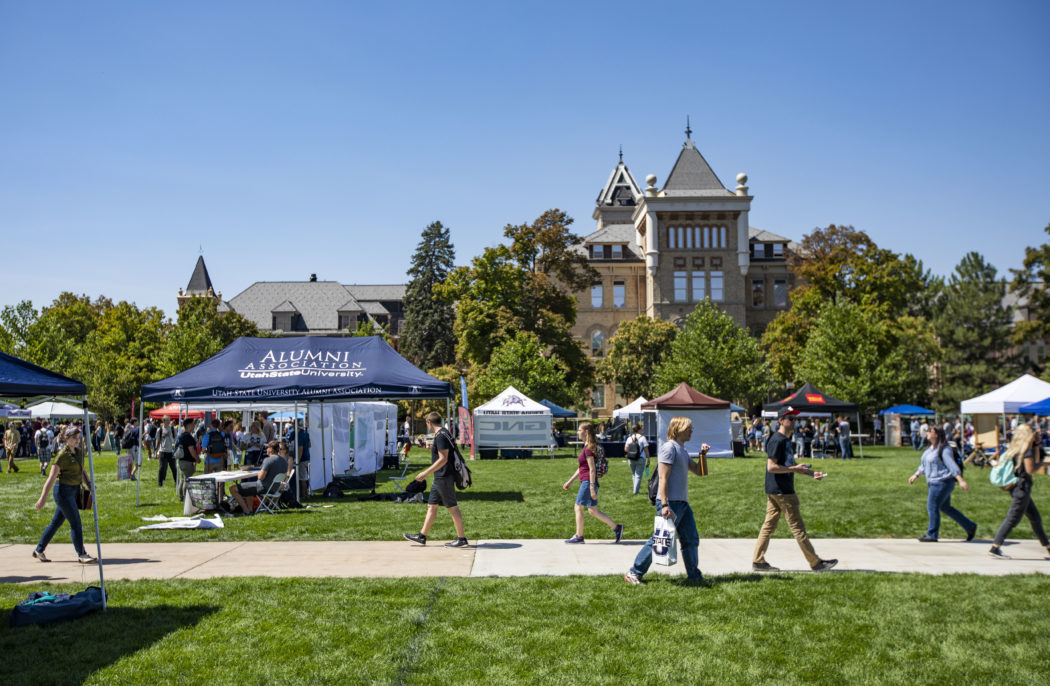Aggie First Scholars program increasing retention rates
Aggie First Scholars is giving first-generation students a better experience at Utah State University and increasing retention rates.
Aggie First Scholars is a program for incoming freshmen whose parents did not graduate college with a four-year degree. The program’s main goals are to foster belonging, give access and create strong communities, said Heidi Kesler, the director of student retention.
“Many first-generation students have what we refer to as imposter syndrome,” she said. The goals were created to combat this and give students what they need to succeed.
Two and a half years ago, first-generation students had a retention rate that was 8% lower than the university average, said Kesler. She created Aggie First Scholars to help these students and it has been increasing since.
“I think that helps them realize that they can do it, they can stay in Utah State. They are smarter than they think, they’re stronger than they think, and I think that’s really important in retention,” said Monique Masina, a supervisor for Aggie First Scholars.
Last year, the program had only 22 mentees and 10 mentors. This year, it has grown to involve 330 new mentees and 86 volunteer mentors. There is also one coordinator and five supervisors, who help oversee the program.
The program is not extracurricular, it is actually a series of one credit classes for first-generation students.
“This isn’t a club, this is something more akin to Huntsman Scholars,” Kesler said.
Through the program’s first year, she found that students often prioritized work and academics and did not have time for extracurricular events. Kesler then switched the program to classes, so students could participate without feeling like they were giving something up.
“A lot of the students who took the class said things like, ‘You know, I feel like I go to my other classes and get wound more and more tightly and then I come to this class and I feel like I can breathe again,’” Kesler said.
Aggie First Scholars also provides peer mentors for the participants. These mentors are given grants to take their four mentees out to lunch once a month. At these meetings, Kesler said, they have the opportunity to ask questions they are afraid to ask their professors. First scholars also can meet individually with their peer mentors for one on one help.
Although there is not a scholarship offered, throughout the classes, students practice writing scholarship essays and finding scholarships they qualify for. Kesler said this makes it easy for students to apply to scholarships because they already have everything they need. There is also a separate scholarship through USU for first-generation students called the Educational Opportunity Scholarship.
hala.louviere@aggiemail.usu.edu
@halaback_girl

